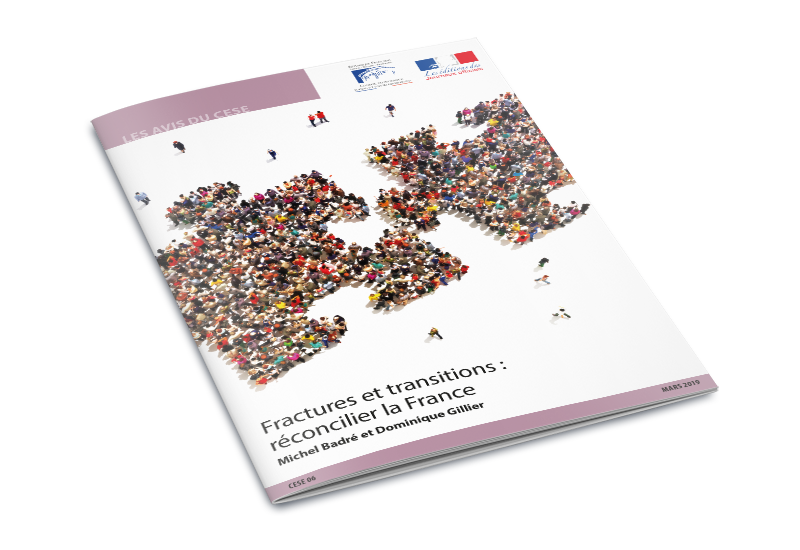CONTEXT AND GOALS
France has experienced social unrest revealing a number of social and regional divisions, with the dissatisfaction and sense of injustice sometimes expressed violently. The “Yellow Vests” movement has undoubtedly been the most visible demonstration of this, but the discontent was already there in many areas.
This also demonstrates the need to have a say, to feel like a genuine citizen, to join in debates, to influence the political agenda and to contribute to decisions. Fueled by the impression that leaders, especially national leaders, no longer listen to citizens and the problems they face from day to day, it is ultimately a desire to see real change and the feeling that the citizens’ ability to influence decisions should no longer be defined by electoral deadlines only.
The ESEC identified four themes to be addressed to formulate a systemic response to the many divides – ecological and environmental, social, fiscal, purchasing power and democratic – that fracture our society.
- 27 citizens came together on a panel reflecting the diversity of society, and five volunteers from among them were selected at random to follow the work of the ESEC’s temporary committee on the same themes.
- This temporary committee set up within the ESEC had 28 members, five of which were invited to observe the work of the citizens’ group.
- An online consultation.
“By directly involving a group of citizens in our work, this opinion has taken us to the next level – and it has been extremely positive.
Dominique Gillier
Rapporteur of the ESEC opinion
PROCEDURE
Missions Publiques assisted the ESEC with the design of the full consultation process. In addition, we co-designed the facilitation protocol for the citizens’ group with the ESEC and then facilitated the citizens’ group during and between sessions, up to the drafting and adoption of a signed citizens’ opinion.
OUR ADDED VALUE
Although participatory approaches have existed at every level for decades, the innovative aspect of this process is noteworthy, especially the “reciprocity” that was central to the experiment.
This meant that five volunteer citizens selected at random from the citizens’ group joined the work of the temporary committee, while five committee members observed the work of the citizens’ group over two weekends and at a session where the two groups came together. A timetable was set for the citizens’ opinion so that its content could be submitted to the temporary committee three weeks before the ESEC’s final opinion was adopted.
This is what makes the approach innovative: generally speaking, institutions roll out participatory approaches alongside their own governance processes, drawing on the opinions of citizens without involving them in decision-making or when formulating recommendations.
In fact, this element of reciprocity was introduced to establish permeability and dialogue between the temporary committee and the citizens’ group, thanks to the continued presence of five members of the TC at the citizens’ group sessions and five members of the citizens’ group at the TC meetings. This reciprocity is highly symbolic because it recognizes that their words and roles are of equal value.
OUTCOMES
After these three months’ work, two opinions setting out the key messages and proposals on each of the four themes (purchasing power, living conditions and fiscal justice; ecological transition; social and territorial divides; citizen participation) were presented to the ESEC and made public:
- an opinion from the temporary committee
- an opinion from the citizens’ group.
DELIVERABLES




